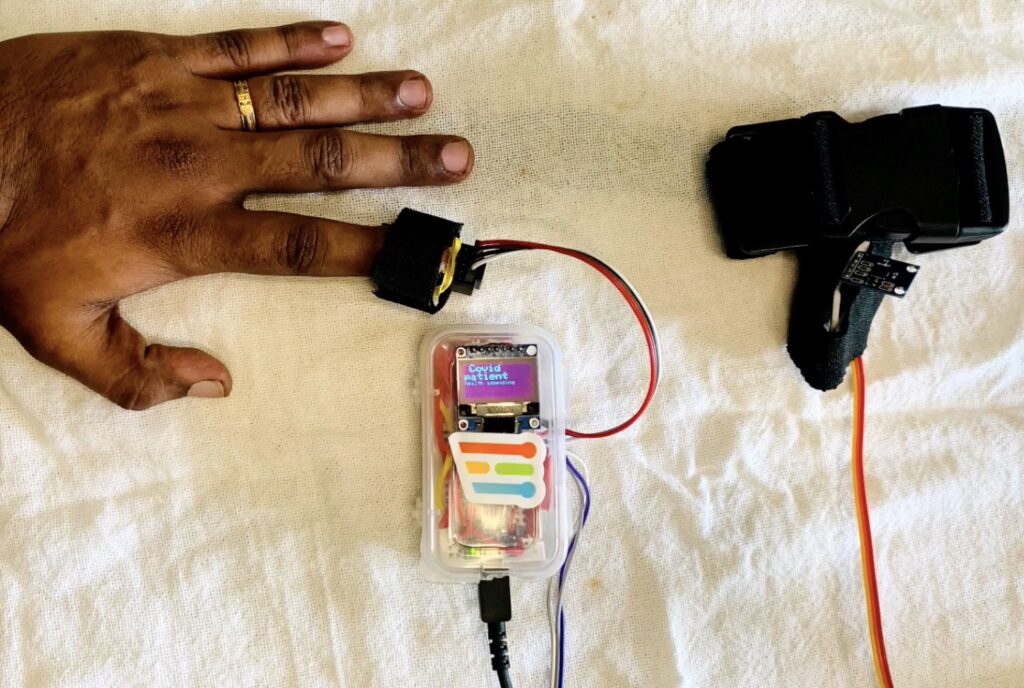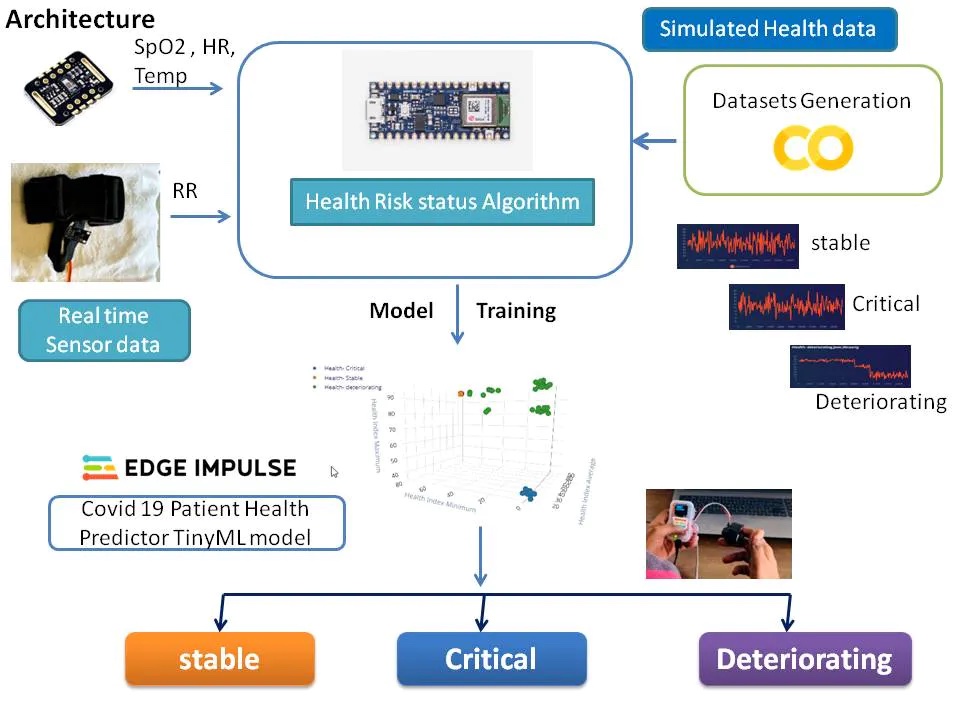
In light of the ongoing COVID-19 pandemic, being able to quickly determine a person’s current health status is very important. This is why Manivannan S wanted to build his very own COVID Patient Health Assessment Device that could take several data points from various vitals and make a prediction about what they indicate. The pocket-sized system features a Nano 33 BLE Sense at its core, along with a Maxim Integrated MAX30102 pulse oximeter/heart-rate sensor to measure oxygen saturation and pulse.
From this incoming health data, Manivannan developed a simple algorithm that generates a “Health Index” score by plugging in factors such as SpO2, respiration rate, heart rate, and temperature into a linear regression. Once some sample data was created, he sent it to Edge Impulse and trained a model that uses a series of health indices to come up with a plausible patient condition.

After deploying the model to the Nano 33 BLE Sense, Manivannan put some test data on it to simulate a patient’s vital signs and see the resulting inferences. As expected, his model successfully identified each one and displayed it on an OLED screen. To read more about how this device works, plus a few potential upgrades, you can visit its write-up on Hackster.io here or check out the accompanying video below.
The post This pocket-sized uses tinyML to analyze a COVID-19 patient’s health conditions appeared first on Arduino Blog.
No comments:
Post a Comment